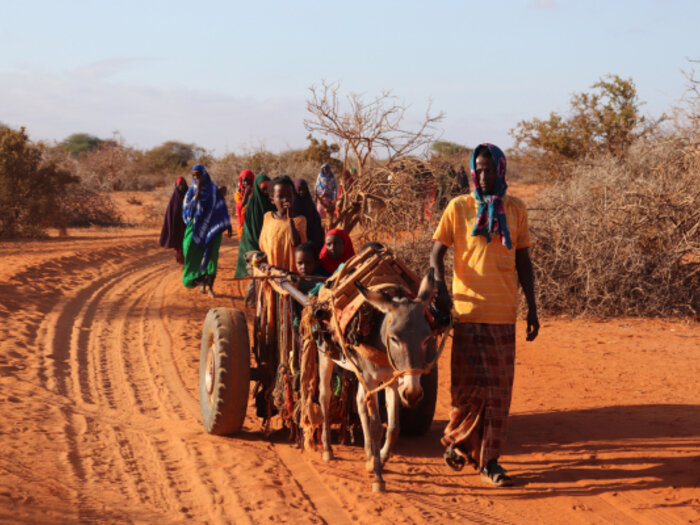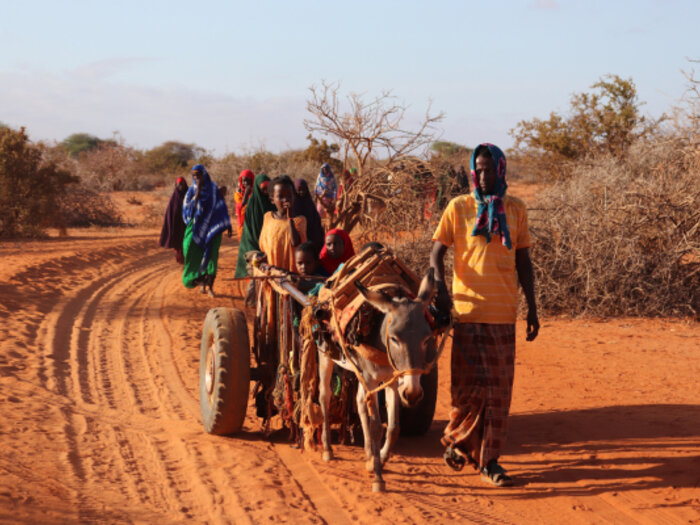Floods – by some estimates the worst in decades – have driven close to half a million people from their homes. They have also crippled families’ attempts to rebuild livelihoods ravaged by the 2020-2023 drought – the country’s longest on record, which pushed Somalia to the brink of famine.

These unrelenting climate shocks are prolonging Somalia’s hunger crisis, at a time when significant funding shortfalls mean that WFP is only able to provide food assistance to less than half of the people most in need.
WFP delivered cash transfers and early warnings in districts projected to suffer heavy flooding, reaching over 200,000 people. There are plans to distribute US$4.1 million in total. We also pre-positioned boats in key locations to support food delivery.
This anticipatory action meant families had the information and means to protect their homes or to move before the floods hit, leaving fewer people in need of emergency assistance.
Without additional funding, however, WFP will struggle to expand this preventive action or make longer-term investments to build resilience. WFP’s funding gap in Somalia is US$378 million from November 2023 to April 2024.

